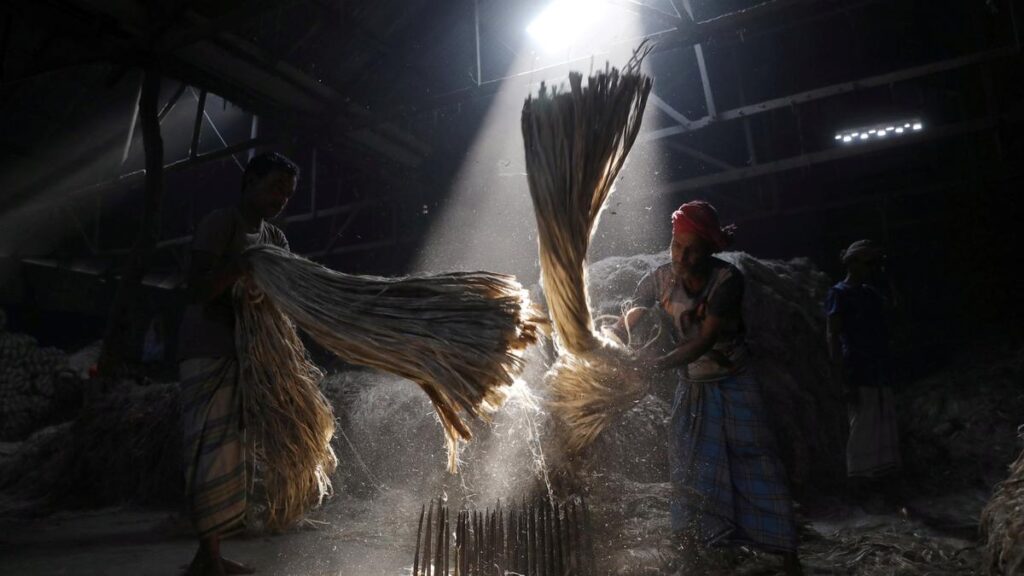970x125
The latest order is aimed at further tightening the import of jute and products made from Bangladeshi jute. File
| Photo Credit: Reuters
970x125
A day after India imposed a fresh round of port restrictions on a range of jute products, officials here justified the move as necessary because Bangladesh’s subsidies were “killing” local Indian industries.
The items listed in Monday’s (August 11, 2025) order by the Directorate General of Foreign Trade (DGFT) included bleached and unbleached woven fabrics of jute or of other textile fibre, twine cordage, rope made of jute, and sacks and bags of jute that have a large market in India. “Imports from Bangladesh shall not be allowed from any land port on the India-Bangladesh Border. However, it is allowed only through the Nhava Sheva seaport,” the order issued by the DGFT said.

“Bangladesh exporters were misdirecting goods under other HS (Harmonised System) codes. Export subsidies by Bangladesh government in different names were killing local industries. Anti-dumping duty was being circumvented by clubbing it with other exports at volumes well above their production capacity,” an official said.
Monday’s (August 11, 2025) order on jute is aimed at further tightening the import of jute, and products made from Bangladeshi jute. On June 27, India banned the entry of a certain range of jute items through land ports, leaving the Nhava Sheva port in Maharashtra open for the same items. That decision followed a May 17 declaration of port restriction by the DGFT targeting readymade garments from Bangladesh.
The order also banned export by Bangladesh of fruits, fruit flavoured drinks, and processed food items (baked goods, snacks, chips, and confectionary); cotton and cotton yarn waste; plastic and PVC finished goods except pigments, dyes, plasticisers, and granules; and wooden furniture via the land ports of Assam, Meghalaya, Mizoram, and Tripura. The same goods were also banned from entering India through the Land Customs Stations of Changrabandha and Fulbari.

Textiles and jute constitute two of the major areas of India-Bangladesh trade, and India’s targeting of these items intensified against the backdrop of Bangladesh Chief Advisor Muhammed Yunus’s visit to China in March, during which he described Bangladesh as the second largest readymade garment manufacturer after China, and invited China to take advantage of Bangladesh’s business potential. “Seven States of eastern India — the seven sisters —are landlocked.
They have no way to reach the ocean,” Prof. Yunus said, pitching Bangladesh as the gateway to the region at an industry meeting during the tour. He had also referred to Nepal and Bhutan as landlocked, and urged greater connectivity between these countries.
The remarks drew a strong response from several Indian leaders, including Assam Chief Minister Himanta Biswa Sarma, who described Prof. Yunus’s remarks as “offensive and strongly condemnable”.
Published – August 12, 2025 10:30 pm IST
970x125

